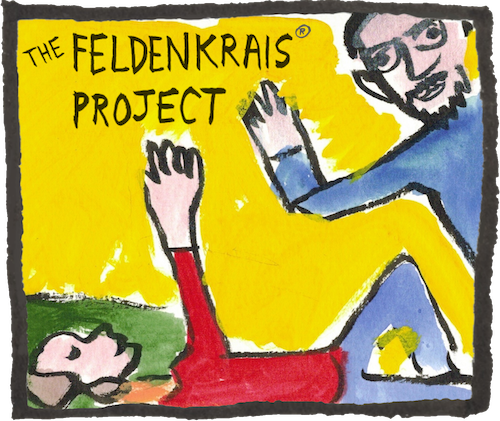The Power of Prone: Twisting on Your Belly
Be sure to read the Comfort & Configuration tab.
Designed to be as accessible as possible, this lesson uses frequent back-lying rests and auxiliary movements to help listeners find more comfort, ease, and learning value while prone. Moving with awareness while lying on your belly can lead to unique benefits for the spine, chest, shoulders, and neck, as well as improvements for posture and breathing.
Got a question for Nick, or a thought about this lesson?
Use the comments section below! Public comments build our community and help search engines find us.





Please share your experience in this lesson or ask a question below!
This lesson is great for my back, as ,by McKenzie method, I am favoring” extension” moves and position.
Also, my cranky neck felt better , more mobility and ease.
I can rest easy in prone, but of course I go for variety in all different positions.
Thank you Nick for your wonderful work. I am already a big fan !!
Dislocated jaw, sore neck, sore eyes and my usual freely subluxating [usually] shoulders. Carriage of the head yesterday, twisting on the belly today. Carriage of the head saved me from taking meclizine for dizziness several years ago [no, I do not recommend that, but the dizziness seemed vestibular and I was afraid of the usual movements to fix it at home and locum drs…you know…drugs – when my doctor returned he listened to what I’d done, snickered. and said, come let me check that you are ok?]. So carriage and then twisting – my cervical arch is much shallower, my neck is easier, no knots behind my jaw but it is still chancy where my jaw will be at any time. I LOVE PRONE LESSONS. At the end of twisting, I was not paying attention and was moving both legs together while arcing my head from over one shoulder, down, and over the other shoulder – I think that is another lesson. Thanks.
And a belated sweet new year.
Glad to hear it. I’ve been thinking of creating a “Tummy Time” miniseries…I’ll take your all caps sentence as a vote in that direction!
Difficult for neck which is always somewhat stiff. And upper thorax on R. But going gently and end result felt great. Head free on neck. Shoulders and hips moving freely. Not a fav to perform but a great result.
The first time I did this lesson two days ago I was aware – lying on my belly – of how wooden and stiff my movements felt. The pelvis, spine, neck and legs expressing minimal communication. Today, on the other hand, everything felt looser -my belly lying movements more fluid – everything working together. I could stay with the lesson (moving from back to belly) nearly the whole way through whereas the first time around I managed close to 3/4 of the lesson. EnJOYable! We’ll see what happens when I repeat this lesson in a few days. Thanks, Nick.